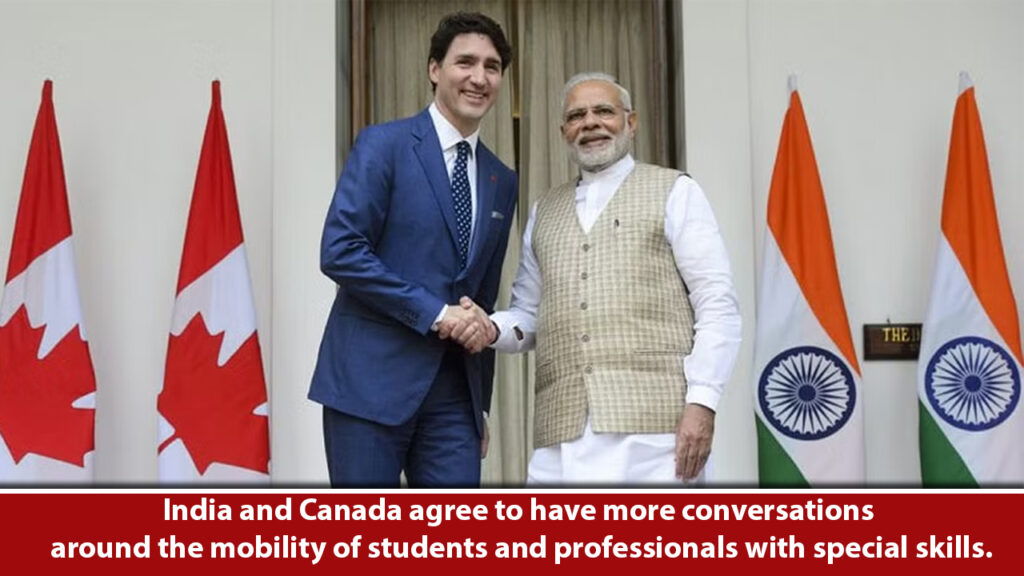Negotiations for a Comprehensive Economic Partnership Agreement (CEPA) between the two nations resumed in 2022. To achieve that aim, negotiations for an Early Progress Trade Agreement (EPTA), which would serve as a first step towards the CEPA, have been ongoing.
India and Canada have agreed to conduct further in-depth conversations about skilled worker and student travel since these groups are vital to deepening bilateral economic connections.
After their meeting, Canadian Minister of Small Business and Economic Development Mary Ng and Indian Minister of Commerce and Industry Piyush Goyal released a joint statement. A comprehensive trade deal was emphasized by both presidents.
Negotiations for a Comprehensive Economic Partnership Agreement (CEPA) between the two nations resumed in 2022. To achieve that aim, negotiations for an Early Progress Trade Agreement (EPTA), which would serve as a first step towards the CEPA, have been ongoing.
High-level commitments to commodities, services, investments, rules of origin, sanitary and phytosanitary measures, technical trade obstacles, and dispute resolution are just a few of the topics that the EPTA would address.
As part of the Ministerial Dialogue on Trade and Investment between India and Canada, both ministers get together. Goyal traveled to Canada for this conference.
“The ministers acknowledged the large mobility of students, business travelers, professionals, and skilled employees between the two nations and its enormous contribution to developing the bilateral economic cooperation. Additionally, they took notice of the need for more in-depth conversations on migration and mobility in this context, according to the statement.
Both parties agreed to keep talking about how to expand and improve the bilateral innovation ecosystem using a suitable framework that has yet to be decided.

To ensure resilient essential mineral supply chains, the ministers recognized that government-to-government coordination is crucial when it comes to enhancing collaboration in this sector.
They also pledged to an annual interaction at the official level on the sidelines of the Prospectors and Developers Association Conference in Toronto and agreed to investigate alternatives for business-to-business engagement on vital minerals between the two nations.
Critical minerals including lithium, titanium, vanadium, cobalt, nickel, and graphite, are in high demand in India since it wants to increase its renewable energy output by 2030.
